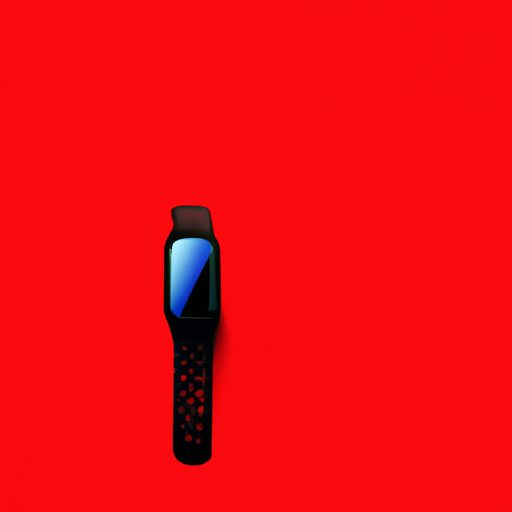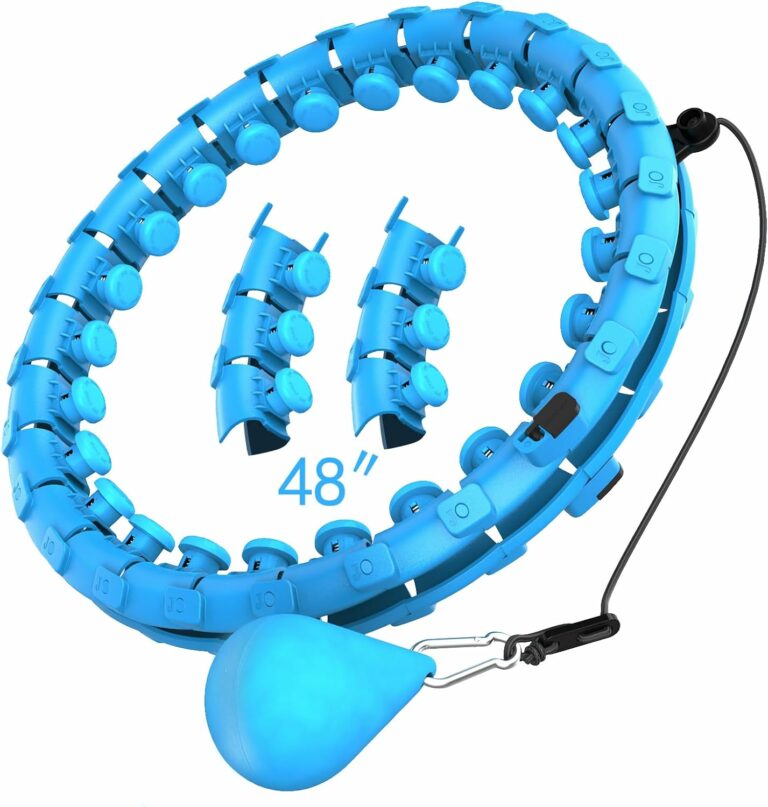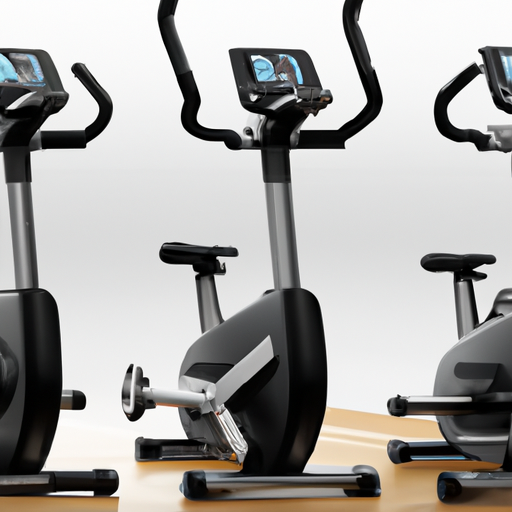Are you ready to take your fitness game to the next level? Look no further! In this article, we will explore the world of fitness trackers and help you find the perfect one to match your active lifestyle. With so many options on the market, it can be overwhelming to choose the right one for you. That’s where we come in! We will compare and contrast the top fitness trackers, taking into account features, design, and compatibility, so you can make an informed decision and embark on your fitness journey with confidence. Get ready to find your perfect fitness companion!
Types of Fitness Trackers
When it comes to fitness trackers, there are several different types of devices to choose from. Each type offers its own unique features and benefits, so it’s important to understand the differences between them before making a decision.
Wrist-based Fitness Trackers
Wrist-based fitness trackers are perhaps the most common type of fitness tracker on the market today. These devices are typically worn on the wrist like a watch and are designed to track your activity throughout the day. They can measure your steps, distance traveled, calories burned, and even monitor your heart rate. Some wrist-based fitness trackers also offer sleep tracking capabilities, allowing you to monitor the quality and duration of your sleep.
Clip-on Fitness Trackers
Clip-on fitness trackers are another popular option for those who prefer not to wear a wristband. These devices can be attached to your clothing or worn on a belt and provide many of the same tracking features as wrist-based fitness trackers. Clip-on trackers are lightweight and discreet, making them a great choice for those who prefer a more subtle option.
Smartwatches with Fitness Tracking Features
Smartwatches with fitness tracking features are becoming increasingly popular among fitness enthusiasts. These devices combine the functionality of a traditional wristwatch with the tracking capabilities of a fitness tracker. In addition to tracking your activity, smartwatches can also display notifications from your smartphone, track your heart rate, and even play music. Smartwatches offer a more comprehensive set of features but are often more expensive than other types of fitness trackers.
GPS-enabled Fitness Trackers
For those who enjoy outdoor activities such as running or cycling, a GPS-enabled fitness tracker is a must-have. These devices use GPS technology to accurately track your distance and pace, providing valuable feedback for improving your performance. GPS-enabled fitness trackers can also monitor your heart rate, track your steps, and provide insights into your overall activity level. While these trackers tend to be more expensive than other types, they offer advanced features for serious athletes.
Features to Consider
When choosing a fitness tracker, it’s important to consider the features that are most important to you. Here are some key features to keep in mind:
Step Tracking
Step tracking is a basic feature that almost all fitness trackers offer. It counts the number of steps you take throughout the day, giving you a better understanding of your daily activity level.
Heart Rate Monitoring
Heart rate monitoring is a valuable feature for those who want to track their cardiovascular fitness. It allows you to monitor your heart rate in real-time, giving you insight into the intensity of your workouts and helping you set more accurate fitness goals.
Sleep Tracking
Sleep tracking is a feature that allows you to monitor the quality and duration of your sleep. It can provide valuable insights into your sleep patterns and help you identify areas for improvement.
Calories Burned
Calorie tracking is a feature that calculates the number of calories burned during your workouts and daily activities. It can help you set and achieve weight loss or maintenance goals.
Distance Tracking
Distance tracking is a feature that measures the distance you travel during exercise or throughout the day. This can be especially useful for runners, cyclists, or those who want to track their progress in specific activities.
Water Resistance
Water resistance is an important feature for those who want to track their activity while swimming or participating in other water sports. Not all fitness trackers are water-resistant, so be sure to check the specifications before purchasing.
GPS Tracking
GPS tracking allows you to accurately track your outdoor activities, such as running or cycling. It provides detailed information on distance, pace, and route, helping you improve your performance and track your progress over time.
Activity Tracking
Activity tracking is a feature that monitors your overall activity level throughout the day. It can track not only your steps but also your active minutes, calories burned, and intensity of activity.
Compatibility
Compatibility refers to the ability of a fitness tracker to sync with your smartphone or other devices. Check to see if the tracker is compatible with your preferred operating system, such as iOS or Android.
Battery Life
Battery life is an important consideration, especially if you plan to wear your fitness tracker all day and night. Look for a tracker that has a battery life of at least several days to minimize the need for frequent charging.
Fitbit
Fitbit is one of the most well-known and trusted brands in the fitness tracker industry. They offer a wide range of models to suit different needs and preferences.
Models available
Fitbit offers several models, including the Fitbit Charge 4, Fitbit Inspire HR, Fitbit Versa 3, and Fitbit Sense. Each model has its own unique features and price point.
Key features
- The Fitbit Charge 4 offers advanced fitness tracking features such as GPS tracking, heart rate monitoring, sleep tracking, and activity tracking. It also has a long battery life and is water-resistant.
- The Fitbit Inspire HR is a more basic fitness tracker that still offers key features such as heart rate monitoring, sleep tracking, and activity tracking. It is also water-resistant and has a long battery life.
- The Fitbit Versa 3 and Fitbit Sense are smartwatches with fitness tracking capabilities. They offer all the features of the Charge 4 and Inspire HR, as well as additional features such as music storage and voice control.
Pros
- Fitbit has a reputation for accurate tracking and user-friendly interfaces.
- Fitbit offers a wide range of models to suit different budgets and preferences.
- Fitbit’s app provides detailed insights and allows for easy tracking and monitoring of your fitness goals.
Cons
- Fitbit devices can be on the more expensive side compared to other brands.
- Some users have reported issues with the accuracy of heart rate monitoring on certain Fitbit models.
Garmin
Garmin is another well-respected brand in the fitness tracker market, known for their high-quality, GPS-enabled devices.
Models available
Garmin offers a variety of models, including the Garmin Forerunner series, Garmin Venu, and Garmin Vivoactive series. Each model is tailored to different sports and activities.
Key features
- The Garmin Forerunner series is designed for serious runners and offers advanced features such as GPS tracking, heart rate monitoring, and training analysis tools.
- The Garmin Venu is a smartwatch with fitness tracking capabilities. It offers features such as GPS tracking, heart rate monitoring, sleep tracking, and animated workouts.
- The Garmin Vivoactive series is aimed at a more general audience and offers a range of features including GPS tracking, heart rate monitoring, sleep tracking, and activity tracking.
Pros
- Garmin devices are known for their excellent GPS accuracy and durability.
- Garmin offers a wide range of models to suit different sports and activities.
- Garmin’s app provides detailed insights and analysis of your workouts and activity levels.
Cons
- Garmin devices can be pricey compared to other brands.
- Some users have reported issues with the user interface and software compatibility on certain Garmin models.
Samsung
Samsung is a well-known brand in the tech industry, and their fitness trackers offer a combination of style and functionality.
Models available
Samsung offers several models, including the Samsung Galaxy Fit2 and Samsung Galaxy Watch Active2. Each model offers a different set of features and price point.
Key features
- The Samsung Galaxy Fit2 is a budget-friendly fitness tracker that offers features such as step tracking, heart rate monitoring, and sleep tracking. It has a sleek, lightweight design.
- The Samsung Galaxy Watch Active2 is a smartwatch with fitness tracking capabilities. It offers features such as GPS tracking, heart rate monitoring, sleep tracking, and activity tracking. It also has a stylish, customizable design.
Pros
- Samsung devices have a sleek and stylish design.
- Samsung’s fitness trackers offer a good balance of functionality and affordability.
- Samsung’s app provides a user-friendly interface and integrates well with other Samsung devices.
Cons
- Some users have reported issues with the accuracy of heart rate monitoring on certain Samsung models.
- Samsung’s fitness trackers may not offer as many advanced features as other brands.
Apple
Apple is known for its innovative technology and its fitness trackers are no exception. Their smartwatches offer a wide range of features for fitness enthusiasts.
Models available
Apple offers several models of their Apple Watch, including the Apple Watch Series 6 and Apple Watch SE. Each model offers different features and price points.
Key features
- The Apple Watch Series 6 is a top-of-the-line smartwatch with advanced fitness tracking features. It offers features such as GPS tracking, heart rate monitoring, sleep tracking, and activity tracking. It also has an ECG app for monitoring heart health.
- The Apple Watch SE is a more affordable option that still offers many of the same fitness tracking features. It does not have the ECG app.
Pros
- Apple Watch offers a sleek and stylish design with a wide range of customizable options.
- Apple Watch integrates seamlessly with other Apple devices.
- Apple’s app, Apple Fitness+, provides a comprehensive fitness platform with a variety of workouts and training programs.
Cons
- Apple Watch is one of the more expensive options on the market.
- Some users have reported shorter battery life compared to other fitness trackers.
Other Brands
In addition to the well-known brands mentioned above, there are several other brands that offer reliable and feature-rich fitness trackers.
Polar
Polar offers a range of fitness trackers, including the Polar Ignite and Polar Vantage series. These devices are known for their accuracy and advanced training features.
Xiaomi
Xiaomi offers affordable fitness trackers such as the Xiaomi Mi Band series. These devices offer basic fitness tracking features at a budget-friendly price.
Huawei
Huawei offers fitness trackers such as the Huawei Band series, which offer features like heart rate monitoring, sleep tracking, and activity tracking. They also have stylish designs.
FitTrack
FitTrack offers fitness trackers that focus on body composition analysis, providing insights into metrics such as body fat percentage and muscle mass.
Amazfit
Amazfit offers a range of fitness trackers and smartwatches, including the Amazfit Bip series and Amazfit GTS series. These devices offer features such as GPS tracking, heart rate monitoring, and activity tracking at an affordable price.
Price Range
Fitness trackers come in a range of price points, so it’s important to consider your budget when making a decision. Here are the general price ranges for fitness trackers:
Budget Fitness Trackers
Budget fitness trackers typically range from $20 to $100. These trackers offer basic features like step tracking, sleep tracking, and heart rate monitoring. They may not have all the advanced features of more expensive options, but they can still provide valuable insights into your activity level.
Mid-range Fitness Trackers
Mid-range fitness trackers usually range from $100 to $200. These trackers offer a wider range of features, including GPS tracking, advanced sleep tracking, and additional activity tracking modes. They often have longer battery life and more stylish designs.
High-end Fitness Trackers
High-end fitness trackers can range from $200 to $500 or more. These trackers offer the most advanced features, such as multisport tracking, detailed performance analysis, and advanced health monitoring. They often have premium designs and materials.
Comparing Fitness Trackers
When comparing fitness trackers, there are several factors to consider:
Design and Comfort
Fitness trackers come in a variety of designs, from sleek and minimalistic to bold and sporty. Consider your personal style and preferences when choosing a design. Additionally, consider the comfort of the tracker, especially if you plan to wear it for extended periods.
User Interface and Display
The user interface and display of a fitness tracker can greatly impact the user experience. Look for a tracker with a user-friendly interface and a clear, easy-to-read display. Touchscreen displays can make it easier to navigate through menus and track your progress.
Tracking Accuracy
Accurate tracking is crucial for getting reliable data from your fitness tracker. Look for trackers with good reviews regarding accuracy, especially for features like step tracking and heart rate monitoring. GPS-enabled trackers should also have good GPS accuracy for accurate distance and pace tracking.
Battery Life
Battery life is an important consideration, especially if you plan to wear your fitness tracker all day and night. Check the estimated battery life of the tracker and consider how often you are willing to charge it. Longer battery life can reduce the need for frequent charging.
App and Software
The app and software that accompany a fitness tracker can greatly impact your experience. Look for an app that is compatible with your smartphone and has a user-friendly interface. Consider the features offered by the app, such as data analysis, goal tracking, and the ability to sync with other fitness apps.
Conclusion
When it comes to choosing a fitness tracker, there are countless options available. The key is to consider your specific needs and preferences, as well as your budget. Whether you’re a casual exerciser or a serious athlete, there is a fitness tracker out there that will suit your active lifestyle. Consider the features that are most important to you, such as step tracking, heart rate monitoring, GPS tracking, and compatibility with other devices. With so many options to choose from, you’re sure to find the perfect fitness tracker to help you reach your health and fitness goals. Happy tracking!







